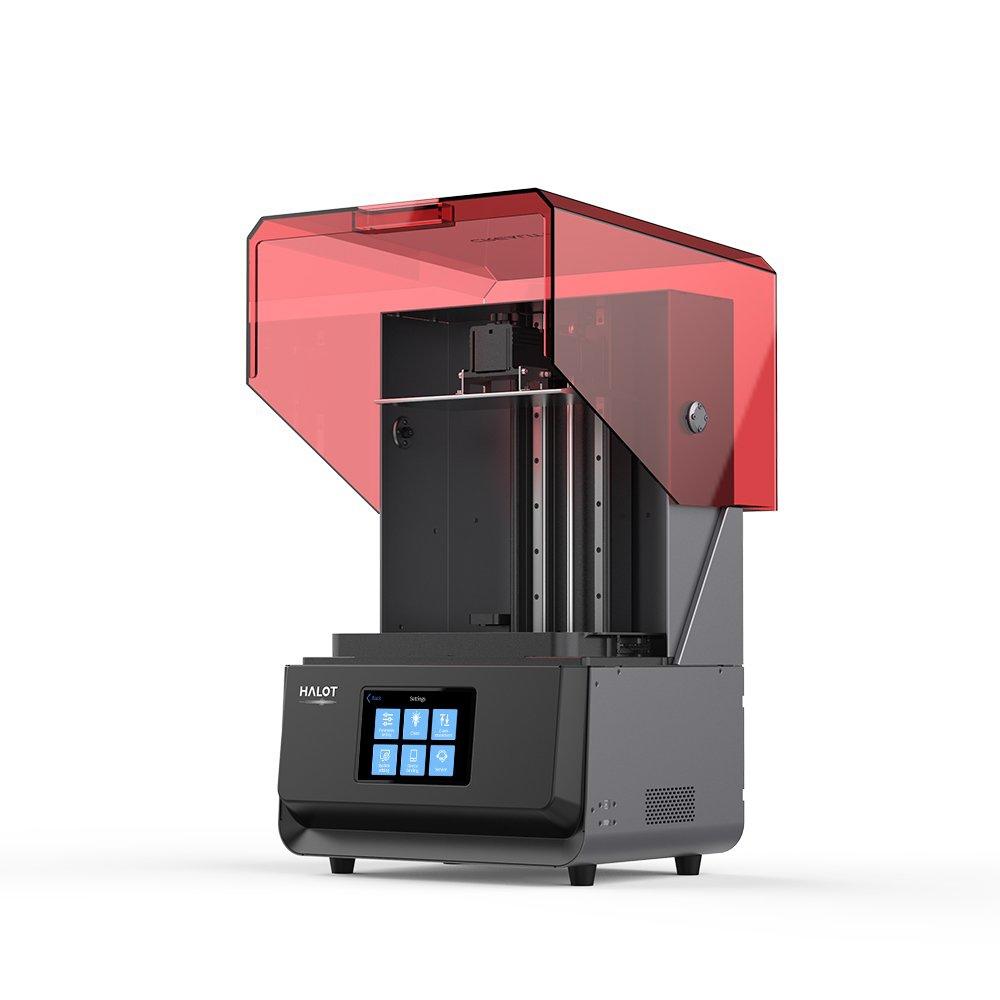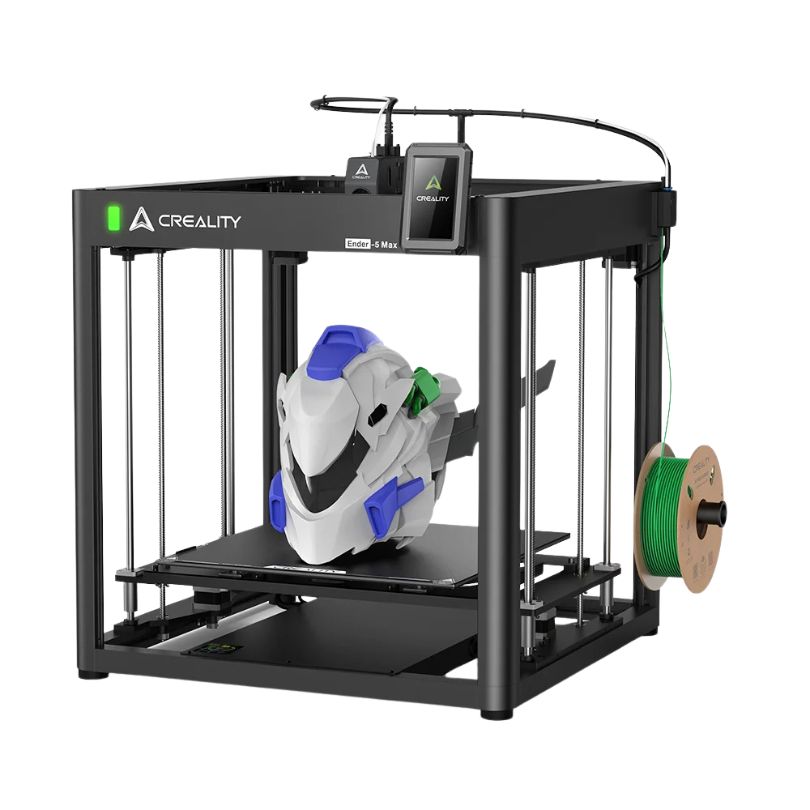Compare Halot Max vs Ender 5 Max
Comparison between the best 3D printers
Choose the best 3D printer at the best price. The cheapest 3D printers are here.
Buy a 3D printer here with 3D Fila.
 |
 |
|
| Model | Halot Max[BUY Halot Max] |
Ender 5 Max |
| Printing Material | Resin | Filament |
| Buy Resin for Creality 3D Halot Max | Buy Filament forCreality Ender 5 Max | |
| Estimated price | $3000,00 | $769,00 |
| Manufacturer | Creality 3D | Creality |
| Release Year | 2021 | 2025 |
| Print Volume [mm] | 293x165x300 | 400x400x400 |
| Printer Size [mm] | 480x387x770 | 649x721x850 |
| Weight [kg] | 32,5 | 25,9 |
| Power Loss Recovery | NO | YES |
| Maximum Resolution [mm] | 0,03 | 0,1 |
| Processor | ||
| Display | Display touchscreen 5'' | Touchscreen 4,3'' |
| Power Supply | 1250 W | |
| Connectivity | SD / USB / Wi-Fi | USB, Wifi |
| Operating systems | Windows, Mac, Linux | Windows |
| Date of registration in the system | 2022-11-04 | 2025-02-18 |
| Release date | 2021 | 2025 |
| Extra features | The Halot Max printer stands out for its large print size (293 x 165 x 300 mm) and uses SLA technology. It has an integral light source for improved accuracy and a strong core with an advanced operating system. Its Z-axis module ensures high precision, supported by efficient slicing software. The machine offers online OTA updates and boasts an adjustable layer thickness between 10 and 200 microns. Its XY-axis resolution is 3840*2160, with 0.05 mm accuracy, and an integral 405nm light source. The printer includes a 5" touchscreen and multiple connectivity options, such as USB, Creality Cloud, and HALOT BOX WiFi. With cutting-edge technology, the Halot Max is ideal for printing small models with uniform precision, thanks to its self-developed lighting system and stable printing mechanism, which includes dual linear guides, ball screws, and an intelligent brake system. | The Ender 5 Max by Creality features a 400 x 400 x 400 mm build volume, a rigid aluminum frame, and 36-point auto bed leveling. With speeds up to 700 mm/s, it boasts a hardened dual-gear extruder and a 1000W heated bed, reaching 80°C in just 200 seconds. It supports remote management via WLAN, a tri-color status indicator, and quiet operation, making it ideal for high-precision, high-productivity 3D printing. |
| Support for multiple colors and materials (AMS and CFS) | NO | NO |
Notes * |
||
| Cost-benefit | 5 / 10 | 7 / 10 |
| Hardware | 1 / 10 | 4.5 / 10 |
| Tela | . | . |
| Print volume | 3 / 10 | 4 / 10 |
| Performance | 9 / 10 | 6 / 10 |
| [BUY Halot Max] |
Conclusion |
| In comparing the Halot Max and the Ender 5 Max 3D printers, it's clear that each model has its unique strengths suited for different user needs. The Halot Max, priced significantly higher, excels in print resolution and precision, making it well-suited for applications requiring fine detailed work. Its SLA technology, advanced integral light source, and sophisticated construction ensure high-quality prints, especially for smaller models. However, the limitations in print volume compared to the Ender 5 Max, alongside the lack of power loss recovery, may dampen its appeal for those needing larger businesses' capabilities or reliability during extensive printing sessions. On the other hand, the Ender 5 Max offers a more substantial build volume, making it ideal for larger projects. Its user-friendly features, such as auto bed leveling and rapid heating capabilities, cater to a wide audience, especially hobbyists or small businesses that require versatility and quick turnaround times. The connectivity options and ease of operation further enhance its usability for a broader range of applications. From a cost-benefit perspective, while the Halot Max may provide premium features suitable for specialized printing tasks, the Ender 5 Max delivers solid performance at a more accessible price point. Overall, the choice between these two printers should be guided by the intended use, budget constraints, and specific printing needs—whether one values high precision in small prints or versatility and a larger build capacity in larger-scale projects. |

